A Bibliography of Historians' Responses to COVID-19
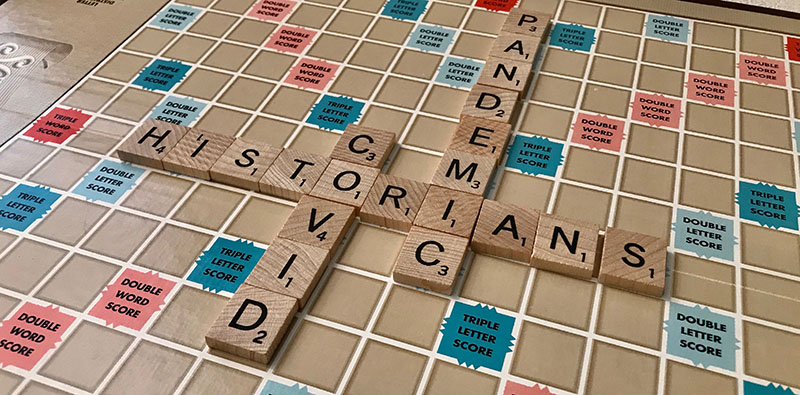
As the novel coronavirus began to spread in the United States in early 2020, people across the country turned to historians for crucial insights regarding the history of epidemics and pandemics. From the Black Death to the 1918 flu to the AIDS epidemic, historians drew from a wealth of historical material to illustrate the range of human, governmental, societal, and scientific responses to massive disease outbreaks over time. As the COVID-19 crisis unfolded, historians were quick to assess the economic, political, and social fallout from the pandemic as it took its devastating toll on American life. The American Historical Association compiled a professionally vetted bibliography of historians’ responses to COVID-19, published from March 2020 to March 2021, as a resource for the public, teachers, and scholars seeking historical perspectives on the crisis and its local and global impacts.
The bibliography includes commentary and publications by historians in both scholarly and popular periodical literature; recorded lectures and webcasts; and digitized primary source materials from past epidemics and pandemics. In amassing these references, the AHA sought to provide a space where anyone, regardless of expertise, can find digital historical material relevant to the COVID-19 crisis. The bibliography may be especially useful for educators as a professionally vetted index of online resources.
Part of “Confronting a Pandemic: Historians and COVID-19,” the bibliography was funded by a National Endowment for the Humanities(NEH) CARES Grant. The AHA is grateful to the History of Science Society and the American Association for the History of Medicine for their many contributions to this bibliography project.
AHA and COVID-19
.jpg)
In the wake of COVID-19's disruption to daily life in the United States, the American Historical Association responded to the pandemic's impact by advocating for historians, emphasizing the importance of historical thinking in understanding the current crisis, and urging all institutions that employ historians to be flexible and humane in considering the needs of their employees and constituencies. This section includes AHA statements on the impact of COVID-19 on historians, as well as Perspectives on History articles on topics contextualizing the pandemic.
Government Responses
.jpg)
The entries in this section explore how diverse governments have responded to epidemic and pandemic disease outbreaks from the 14th century to the present. Most of the references focus on US governmental responses, ranging from the municipal to the federal level. The entries collectively consider the behavior of governments during the most critical moments of disease outbreaks.
Public Responses and Human Experiences
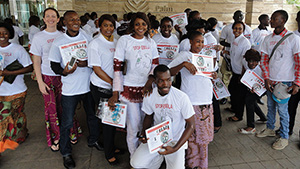
The references featured here highlight people's lived experiences of epidemics and pandemics, past and present. The authors employ social and cultural analyses of disease outbreaks and their impacts on both individual people and larger social groups living within and beyond the United States.
Medical and Scientific Responses
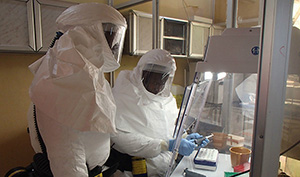
The entries compiled here examine the medical community's efforts to cure and contain infectious diseases that have reached epidemic and pandemic proportions, beginning with the sixth century. The authors showcase the contributions of individuals and institutions in the fight against diseases outbreaks from The Plague to COVID-19.
Global and Historical Perspectives
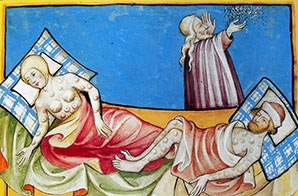
The references in this section consider the challenges posed by massive disease outbreaks to the discipline of history and to global inequalities over time. The authors employ broader disciplinary and global perspectives in assessing the large-scale impacts of epidemics and pandemics that transcend regions and time periods.
Race and Health
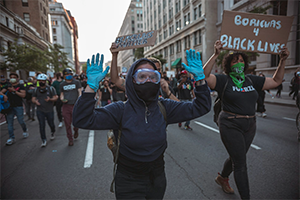
This section addresses current and historical public health crises within the context of xenophobia, racism, and racial inequity. The authors address the Black Lives Matter movement, Indigenous peoples' experiences of epidemics, and how epidemics have spurred prejudice against marginalized populations.
Primary Sources and Teaching Tools
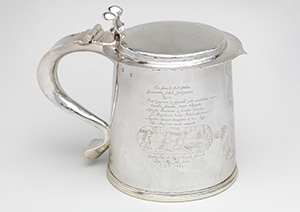
This section includes primary sources, maps, and timelines related to past epidemics that are suitable for research or classroom use.
Collecting Initiatives
.jpg)
The entries in this section of the bibliography feature collecting projects that document individual and community experiences of the COVID-19 pandemic across the United States. While there are hundreds of US collection projects currently in progress, the initiatives listed below (organized by state) have either partial or entire collections available online. This vetted list of collecting initiatives speaks to the range of institutions that are actively and conscientiously engaged in the preservation of this unique historical moment.
AHA Statement Regarding Historians and COVID-19
The etiology of the novel coronavirus is at once scientific and historical. In a statement endorsed by several peer organizations, the AHA emphasizes the importance of historical thinking in understanding the current crisis and urges all institutions that employ historians to be flexible and humane in considering the needs of their employees and constituencies.
Explore the Bibliography Using Zotero
The AHA’s Bibliography of Historians’ Responses to COVID-19 Zotero Library allows users to sort and filter entries using more than 145 topics.

